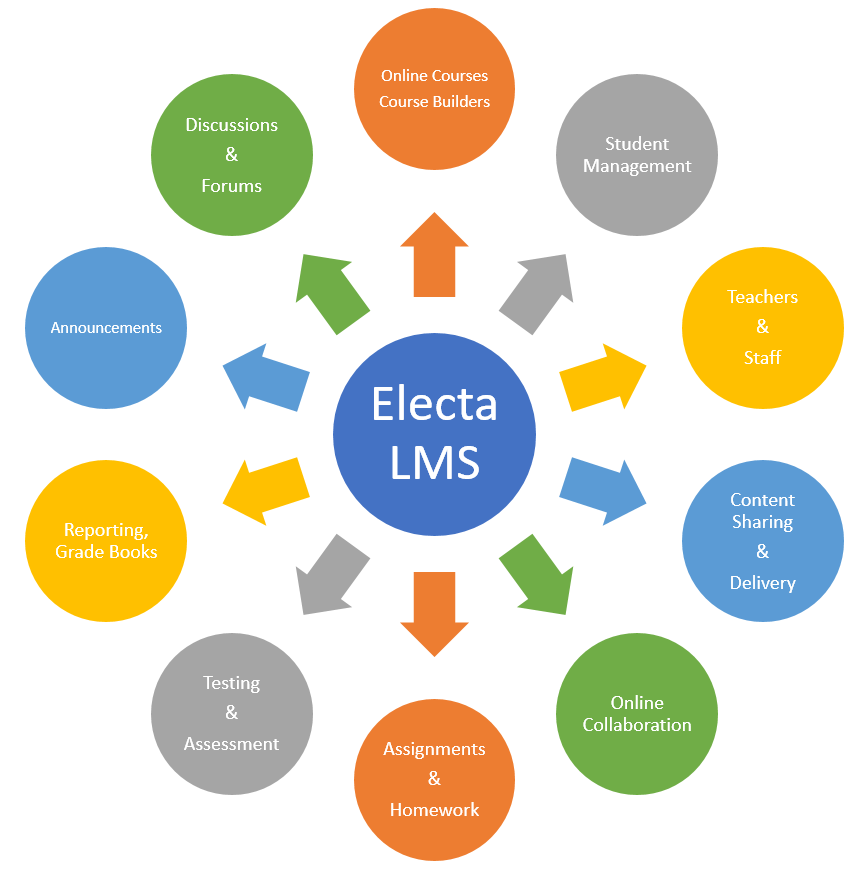Canvas Singapore: Improve Your School's Learning Experience with This Effective LMS
Canvas Singapore: Improve Your School's Learning Experience with This Effective LMS
Blog Article
Choosing the Ideal Learning Management System for Your Organization
Choosing the ideal Discovering Administration System (LMS) for your company is a diverse decision that requires careful factor to consider of numerous aspects. From defining precise learning objectives that reverberate with your critical vision to reviewing individual experience, each aspect plays a critical role in the total performance of the system. Furthermore, understanding combination capabilities and ensuring scalability for future needs can not be overlooked. As companies make every effort for efficiency and development, the choice of an LMS ends up being progressively substantial. What are the important factors to consider that can influence your decision-making process?
Specify Your Understanding Goals
Defining clear knowing objectives is important for the successful implementation of an Understanding Monitoring System (LMS) These goals act as a roadmap, leading the advancement of content, analyses, and total training methods within the LMS. By establishing details, quantifiable, achievable, pertinent, and time-bound (SMART) objectives, companies can make sure that the discovering experiences are aligned with their calculated objectives and student needs.
Reliable understanding objectives need to encapsulate what learners are anticipated to know or be able to do upon completion of a course or training program. This clarity not only help in web content development but additionally helps with the evaluation of learner progress and the general effectiveness of the LMS. LMS Singapore. In addition, distinct purposes allow stakeholders to examine whether the picked LMS capabilities and features align with their academic objectives.
Assess Individual Experience
Once finding out purposes have actually been established, assessing user experience comes to be an essential following step in selecting an ideal Understanding Administration System (LMS) Individual experience encompasses the general fulfillment and simplicity with which learners connect with the system. A well-designed LMS should promote user-friendly navigation, guaranteeing that users can situate programs, products, and assistance effortlessly.
To assess individual experience, take into consideration performing use testing with a representative sample of end-users. Key variables to assess consist of the LMS's user interface layout, accessibility features, mobile compatibility, and the quality of directions provided.
Additionally, review the accessibility of support resources, such as tutorials and assistance facilities, which can boost the customer experience. The responsiveness of customer assistance is also essential; timely assistance can considerably alleviate frustrations that individuals may run into. Inevitably, selecting an LMS that prioritizes user experience not only enriches the learning process but also fosters higher engagement and complete satisfaction among learners.

Evaluate Integration Abilities
Identifying the relevance of smooth functionality, examining assimilation capacities is essential when selecting a Knowing Monitoring System (LMS) A reliable LMS should help with interoperability with existing systems, such as Human Resource Administration Systems (HRMS), Consumer Relationship Monitoring (CRM) platforms, and various other educational devices. This integration improves data circulation, decreases administrative problems, and makes sure a cohesive understanding setting.
When examining an LMS, consider the sorts of assimilations offered. Try To Find Application Programming User Interfaces (APIs), Single Sign-On (SSO) capacities, and pre-built adapters that improve combination procedures. Additionally, validate the LMS's capability to integrate with third-party tools, such as material collections or assessment systems, which can considerably enhance the knowing experience.

Think About Scalability and Versatility
As organizations develop, the ability of a Learning Administration System (LMS) to scale and adapt ends up being significantly important. A scalable LMS can accommodate growth in user numbers, program offerings, and content without compromising efficiency or user experience. As companies expand, whether through boosted employees, new places, or varied training needs, the LMS must flawlessly expand alongside these modifications.
Versatility is equally important; an efficient LMS needs to support different finding out modalities, such as online, mixed, and mobile knowing. This versatility permits organizations to respond quickly to arising trends in training and advancement, making sure that they can offer pertinent and appealing learning experiences - Singapore LMS. Additionally, the system should supply customizable features, enabling organizations to tailor the LMS to their particular needs and branding
Furthermore, an adaptable LMS should integrate quickly with existing devices and systems, helping with a cohesive discovering environment. Thus, when picking an LMS, it is important to evaluate not only its current abilities but additionally its possible to adjust and expand abreast with the company's critical objectives and progressing learning needs. This insight can significantly enhance the long-term stability of the selected LMS.
Evaluation Expenses and Budgeting
When assessing a Knowing Administration System (LMS), reviewing prices and budgeting is important to make certain that the financial investment straightens with the company's financial capacities and strategic objectives. Organizations ought to begin by recognizing the complete price of possession, which consists of licensing fees, application expenses, maintenance, and any additional expenses such as training and technical support.
It is critical to compare various LMS options, as pricing models can vary considerably among vendors. Some systems may supply a subscription-based version, while others may charge an one-time cost. Organizations needs to additionally think about the scalability of the LMS; as Our site they grow, the expense structure may change, impacting lasting budgeting.

Conclusion
Choosing an ideal Knowing Administration System (LMS) is essential for accomplishing business understanding objectives. An extensive examination of customer experience, assimilation abilities, scalability, and economic considerations guarantees that the selected LMS aligns with calculated goals and learner needs. By methodically dealing with these variables, organizations can improve finding out outcomes, assist in smooth procedures, and assistance future growth. Eventually, the right LMS functions as an essential device in cultivating a reliable understanding setting and driving business success.
Choosing the ideal Knowing Management System (LMS) for your company is a diverse decision that calls for cautious consideration of numerous aspects.Defining clear understanding goals is important for the successful execution of a Discovering Management System (LMS)Once finding out goals have been developed, assessing user experience ends up being a vital following step in picking an appropriate Discovering Management System (LMS)As organizations advance, the capability of a Knowing Monitoring System (LMS) to scale and adjust ends up being increasingly crucial.Selecting an ideal Knowing check my site Monitoring System (LMS) is necessary for achieving business learning goals.
Report this page